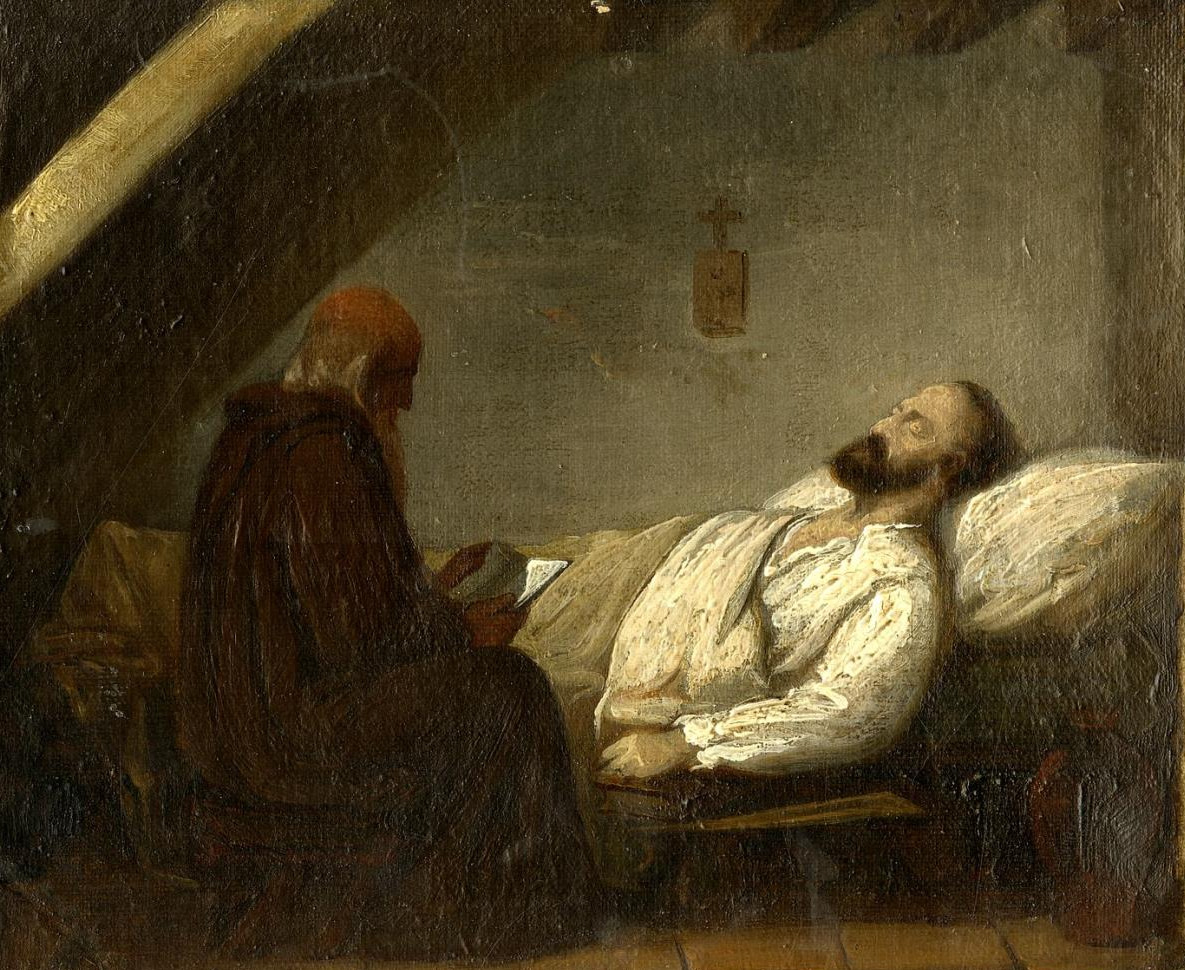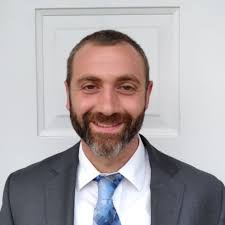My wife’s grandfather died at the age of 95, on Monday of Holy Week. He was affectionately called “Pop;” he was the last of either of our grandparents, the last of his siblings, the last of a generation to pass away. His life, his final months, and his final moments serve as a timely example to our culture. We ought to live with a realization that we must die, and that dying well matters.
His obituary reveals a beautiful, productive, and ultimately successful life. He went from a one-room schoolhouse in Maine, through the Navy, to a master’s degree and a successful career as an engineer. He was a born inventor: he spent most of his career working with General Electric on top-secret projects during the Cold War. He also brought his inventor’s spirit home, improvising makeshift baby carriers and selfie sticks decades before they became a thing. His free time was filled with everything from hobby farming to learning to fly.
His professional life was fruitful. His work on tech projects produced real benefits for our country, and the fruits of those projects are still being used for good today. And more importantly, his professional success allowed him to support his large family, put his kids through school, and to give financial assistance to many needy family members.
But as one’s final days approach, the credentials and finances fade in importance; it ceases to matter too much what a dying man accomplished in his professional life. It is sobering to think that even people who rise to the very top of their professions—CEOs and judges, erudite scholars and widely-read journalists—are quickly forgotten.
What mattered at the end was that Pop had eight children, thirty-five grandchildren, and forty-four great grandchildren at the time of his death (for now: there are more on the way.) He raised his family with love, and that love was returned. He also died in the Church, filled with faith and ready to pass from this earthly life to the next. His life was one of fruitfulness, and that completely transformed the experience of his final years, his final months, and his final moments on earth.
Last summer, it became clear Pop could no longer live alone. He moved into my mother-in-law’s home, where he spent his final months living with his daughter, her husband, and the grandchildren who still live there. He was constantly cared for and visited by another of his daughters who lives down the street, as well as visited regularly by the grandchildren and great-grandchildren who live in the area. My then-one year old son loved Pop. Every time we went to visit, he would run up to Pop, settle himself on his lap, and just sit. The oldest member of our extended family spent precious time with one of the youngest, three generations beneath him. Our parish priest would come to the family home, hear Pop’s confession, give him Communion, and pray with him. Pop spent his final months as one should, living in the heart of his family and of the Church.
In his final days, Pop had a health crisis and was moved to a facility that could care for him as he approached death. He was there less than a week, and he was almost never alone. He was barely conscious in those last days, but his two daughters were there constantly. Grandchildren came to pray, sing hymns, and keep watch with him. Great grandchildren climbed around the room, chatting and laughing, asking questions, praying, and simply being present. Some of Pop’s other children traveled into town, spending time with him in his last days. Additionally, the spouses of many of Pop’s children and grandchildren were a constant presence. The devotion of so many in-laws is a further testament to the family culture he built. When Pop died, his daughter was at his bedside, praying with him in his very last moments.
Everyone ought to pause and remember that all of our lives will inevitably end in death. How often do we reflect on whether our lives are leading us toward a good, holy death? We all ought to spend our final months, our final days, and the moment of our death as Pop did, yet many of us do not live a life likely to end in such a beautiful and holy way.
A couple days before Pop died, one of his daughters was walking back to his room and encountered a nurse. The nurse marveled at how many people were coming to visit Pop, and how he almost never seemed to be alone as he lay dying. His daughter explained that Pop was open to life and had a lot of children, and that people who do not choose that path are making a big mistake. “BIG mistake!” the nurse responded. “People choose not to have kids because they want to focus on their career, or they want to travel. You don’t have your career or your travels when you are this old and alone. Big mistake.”
This anecdote ought not to make one fixate on death, but rather to properly order his life. As the Psalmist says, a person has 70 years on this earth, 80 (or 90 or 100) if he is strong. But this life will end. With that in mind, what matters? Certainly work matters: one’s job or profession can bring love, goodness, and needed products and services to others. But work matters most as a means to the end of providing for the family one is called to support. And ultimately, life is about finding God, loving and serving Him in this life so as to live with Him forever in the life to come.
A bit of reflection on this should transform the priorities of one’s life. Sure, one should make enough money to support his family, and should find satisfaction in the goodness of his work. Hobbies and travel are fine. But ultimately, these things are passing away. We will get old and sick, and we can hold on to none of them. We will die, and we cannot take them with us. So again, what matters?
Love matters. It matters that we love God more and more, up to the hour of our death, so that we may pass into that Love when we die. It matters that we be open to life and bring children into this world, so that we may pass that love on to the next generation of souls meant for God. And it matters, very much, when youth fades and we enter into old age, that the family we have raised and nurtured with love remains around us. We are not meant to live or die alone.
Pop leaves an example of a life of fruitful abundance. His career as an accomplished engineer and a brilliant inventor were fruitful and fascinating, but that career has passed away with his mortal life. What mattered at the end was that, as his powers faded, he was surrounded by three generations of family members who owe their existence to him. He was surrounded by care and conversation, by song and laughter, by prayer and love. These generations of loved ones were with him to the very moment of death, surrounding him with the life and love that he needed as he prepared to pass to eternal life.
We are not meant to die alone in nursing homes and hospitals, with gray faces, morphine drips, and flickering television screens. We are meant to live, die, and live eternally surrounded by a community of love. Creating that community of love, especially within one’s family, takes hard work and sacrifice. It means choosing to be open to life. It means choosing to have a life rich with people, even if that means a life less rich in money and vacations and material possessions. It means choosing to sacrifice some hobbies and luxuries to spend more time with one’s family. And it means choosing to do this, faithfully and consistently, for decades.
The fruits of these choices and sacrifices are clear. Such fruitful lives are the essence of cultural renewal: they will echo through generations, building and restoring healthy families, churches, communities, towns, cultures. No serious political or cultural renewal is possible without people willing to do what it takes to live and die beautifully, as Pop did. And when people choose to be open to life, to raise kids in an atmosphere of love, prayer, and familial closeness, they will have the opportunity to reap the reward of generations of family surrounding them with love and prayer in their final years, days, and moments.
May we reorient our lives around the reality of life, love, and death, and may we be blessed to spend our lives and especially our last days as Pop did. That is how we save ourselves, our families, our cultures, our world.
Image credit: “Morte de Camões” (1874) by Francisco Augusto Metrass





